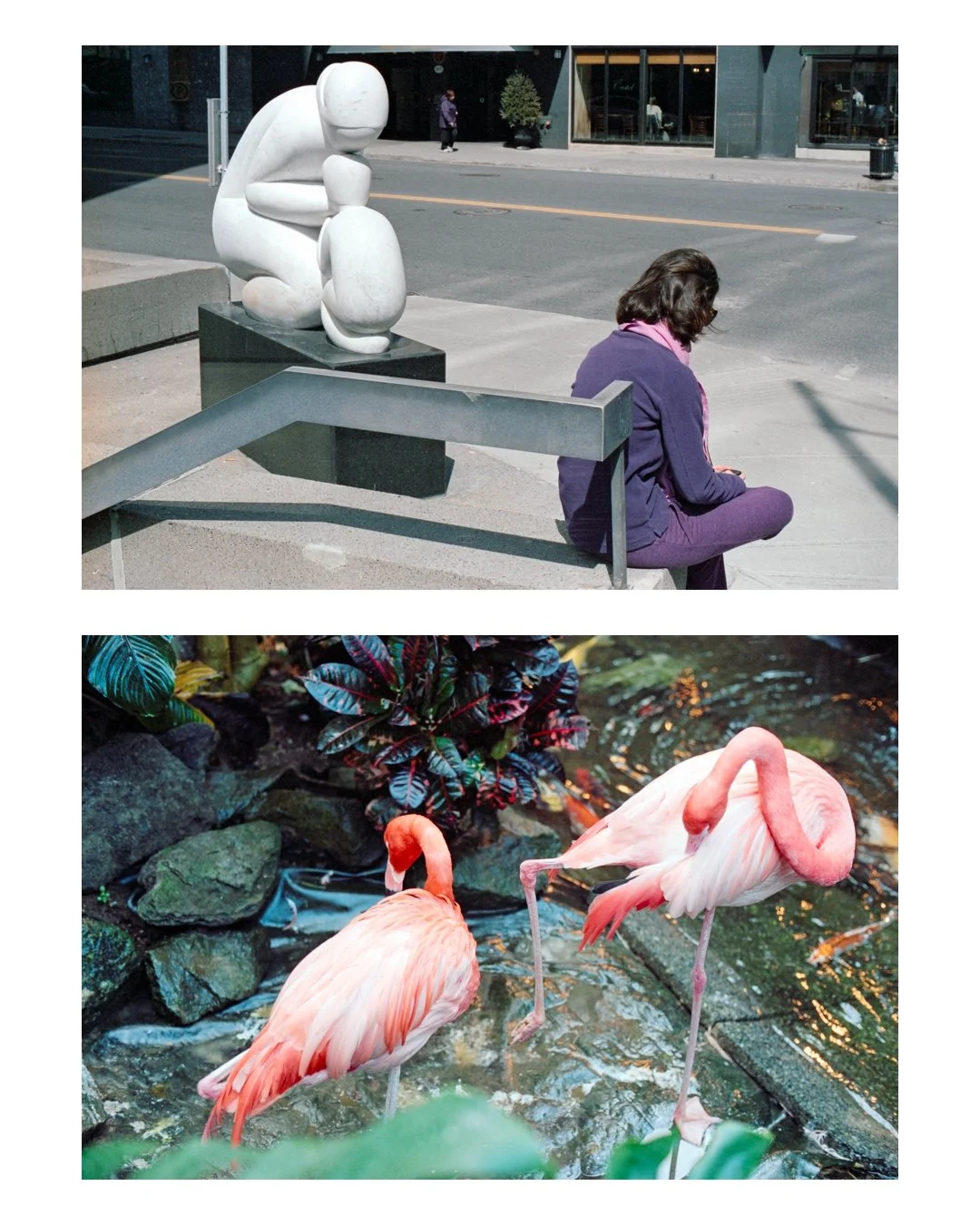Gear Acquisition Syndrome
A couple of weeks ago, I attended the Vancouver Camera Show and Swap Meet. There was a lot of gear for sale, predominantly dusty 35 mm film cameras of all makes, but also some good medium format equipment (one fantastic Rollei SL66, a number of TLRs -- mostly Yashicas -- a few Hasselblads and some old folders). Any of the stuff that was worth buying was out of my league -- although I was very sorely tempted by a Plaubel Makina 67. Eventually, after browsing the many aisles several times, I came away with a single 52 mm Nikon lens cap.
As I was driving home, I lamented the loss of the Plaubel. I've always wondered what it would be like to work with a medium format rangefinder -- honestly! Perhaps this camera would be the key to unlocking my creative genius. Perhaps it would offer me a way of working that felt natural and unconfined. Perhaps it would become an extension of my eye and my imagination. Perhaps ...
... this is where the thinking starts that is at the root of gear acquisition syndrome (GAS).
The relentless progress of digital photography places an enormous psychological pressure on the modern photographer to upgrade his equipment constantly. Those of us still shooting film, however, neatly sidestep this insanity by using cameras that were out of date decades ago and are therefore in no need of upgrading. We learn to work with their foibles and failings, and eventually to love them; they're not going to be fixed in subsequent generations so we have to make the most of it, and we don't yearn insatiably for every new feature. We are so removed from the iteration of technology, that the arrival of the next greatest gadget from Canon or Nikon -- and the next, and the next, and the next -- means no more to us than waves crashing on a distant beach: we hear the rumbles, one after the other, and quietly go about our business.
Except not so efficiently. For we too are trapped, not by the constant crash of arriving waves, but by gurgling eddies and undercurrents. And by that I mean flea markets, estate sales, swap meets, our relatives and neighbours, Craigslist -- and all the other places that we pick up our gear on the cheap. The near total obliteration of film by digital has so dramatically reduced prices that we are now able to buy professional-grade equipment for next to nothing -- and more of it. We buy and horde a large number of cameras simply because we can, not because we have legitimate uses for them. We've moved away from the our fathers' ways of slowly and thoughtfully building camera systems -- a body, or two, perhaps, of the same brand, and and array of fully compatible lenses, flashes, filters and accessories -- to accumulating large misshapen collections of assorted cameras of various vintages -- some working, some not -- with incompatible lens mounts, and taking different film formats. What good does this do us, not as curators, but as photographers?
We would to well to heed the advice of famed fine art photographer Todd Hido, whom I've quoted previously on The Photon Fantastic. Todd says, "You don’t need all this stuff to make pictures. You don’t need the latest and greatest most megapixel camera ... You just need simple equipment. Cameras don’t make pictures. And film doesn’t make pictures. People make pictures. I think it’s important to figure out ... what materials you like to use and what cameras and what lenses you like. And then after that period of figuring it out, you just sort of focus on your creativity and not your equipment. I think that’s an important lesson for people to learn who are trying to figure out photography."
Your choices of camera and film are important. But once you've made those, stop. You won't become a better photographer by flitting between different cameras and film formats. You'll never become sufficiently familiar with your gear for it to move into the background, which is where it needs to be for your creativity to be in the foreground.
And so, in the end, I have to be satisfied with my purchase of a lens cap. That was something I actually needed to replace one that I had lost. And I no longer lament the loss of the Plaubel (OK, I do -- but only a little) because I've decided that every purchase of equipment from now on must be an addition to the camera system that I already use on a daily basis. And, more importantly, it must be in service of my photographic vision. Otherwise, it's just another box on a shelf collecting dust.






